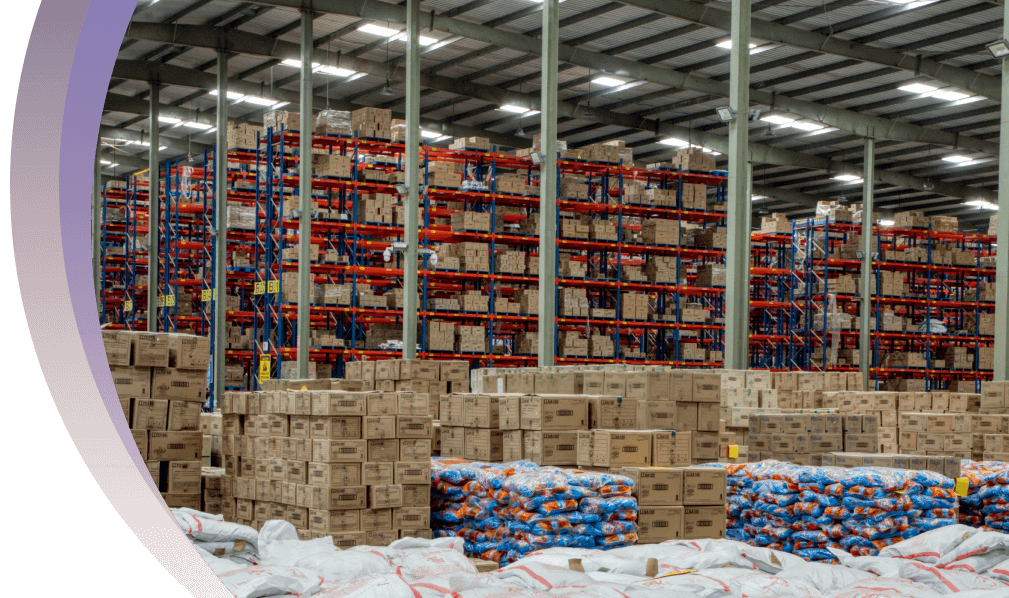
As industries are adopting the ever-growing artificial intelligence and machine learning capabilities the logistics industry is also changing as a result of new technologies. In this blog, we’ll discuss how a huge change is happening in the logistics industry.
AI and machine learning are assisting in streamlining logistical operations, lowering costs, and enhancing customer service through predictive analytics and automated processes. They are used to monitor inventory levels, recommend the best shipping routes, and automate fulfillment procedures.
Predictive analytics can also be used with machine learning to forecast demand and enhance supply chain management. AI may be used to find the best carriers and routes, automate the process of tracking goods, and analyze consumer behavior to find the best delivery service for each individual customer. Improved customer service is also made possible by the newest technologies, such as automated customer service, and individualized advice.
How are logistics and supply chains being impacted by AI and machine learning?
The supply chain and logistics sectors are being greatly impacted by AI and machine intelligence. Many processes in the logistics and supply chain sectors are being automated and improved with the help of AI and machine learning. Predictive maintenance, inventory control, demand forecasting, and route optimization are a few of them. Additionally, these technologies are being used to enhance customer service, streamline procedures, and boost productivity. Supply chain and logistics organizations can enhance their operations and boost their earnings by utilizing cutting-edge technology solutions.
Management of the Supply Chain and Machine Learning
The use of machine learning in supply chain management has the potential to completely alter how businesses conduct business. By assisting in the automation of decisions and procedures pertaining to procurement, inventory management, and forecasting, Machine Learning is used to maximize the effectiveness of Supply Chain Management. Through more accurate demand and supply trend predictions, ML models assist in cost reduction and enhance customer service. By assisting in the detection of fraudulent activity and providing precise consumer behavior predictions, it is also utilized to enhance risk management in Supply Chain Management. Last but not least, Machine Learning can be used to increase the accuracy of route optimization and warehouse management, enabling more effective distribution procedures.
Utilizing Artificial Intelligence to Predict Demand
Demand can be predicted in a variety of ways using AI. As an illustration, consider how machine learning algorithms can be used to evaluate historical data and create predictive models that can forecast demand. Businesses can use this information to plan their next output, stock levels, and price. In order to discover trends in demand and client preferences, AI can also be utilized for demand forecasting by analyzing customer reviews and chats using natural language processing (NLP). AI can also be used to track and evaluate client behavior in real time in order to spot shifts in demand and modify plans of action accordingly.
Route management and consolidation control
Reduce the number of delivery routes, lower delivery costs, and boost customer service levels to increase distribution network efficiency through route optimization and consolidation management. It entails analyzing current routes and creating techniques to improve them, such as route consolidation, stop consolidation, route merging, and inventory consolidation. This procedure can increase the effectiveness of the distribution network and lower the cost of delivery. Additionally, by speeding up product delivery and increasing order fulfillment accuracy, it can help businesses provide better customer service.
Leveraging Technology for Digital Logistics to Grow Your Business
Businesses can gain from a variety of advantages from improved efficiency and cost savings to improved customer service and better inventory management thanks to digital logistics technology.
- Automated order processing: By streamlining and automating the entire order processing cycle, automated order processing can save time and money. Digital logistics technology can be integrated with your current systems to speed up and improve the accuracy of order receipt and processing.
- Real-Time Tracking: Digital logistics technology enables companies to trace shipments in real-time, making it simpler to keep tabs on the status of orders and spot any delays that could be coming. This can assist firms in providing better customer service and quick responses to client concerns.
- Better Inventory Management: Businesses can streamline their inventory management procedures with the use of digital logistics. Businesses may better control their stock levels and make sure that the appropriate products are in the right places at the right times by utilizing digital logistics technologies.
- Improved Visibility: Businesses may benefit from increased supply chain visibility thanks to digital logistics technologies. Businesses may obtain extensive data and analytics that can aid in better supply chain decision-making by combining systems with digital logistics technologies.
- Cost Savings: Businesses can save a lot of money by using digital logistics technologies by streamlining end-to-end processes.
Conclusion
We have discussed how advances in technology are changing the logistics industry in this blog. In logistics, AI enhances the consumer experience. With the use of machine learning-based technologies, your products will be delivered on schedule and in excellent shape. Additionally, your team will have more time and business knowledge, which will help your management team make wise decisions and ensure the growth of your business.
However, don’t hesitate to contact us if you have any inquiries. We would be happy to provide you with further information on the AI and machine learning services we offer for supply chain and logistics management.
